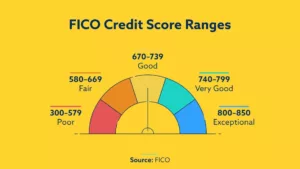 Student loan debt is on target to destroy borrowers’ finances much like the housing crisis. As the economy shows signs of recovery many Americans are finding themselves underwater in student loan debt. Many having taken out costly student loans only to find their degrees are not netting them the equivalent income.
Student loan debt is on target to destroy borrowers’ finances much like the housing crisis. As the economy shows signs of recovery many Americans are finding themselves underwater in student loan debt. Many having taken out costly student loans only to find their degrees are not netting them the equivalent income.
Total outstanding student loan debt in America is expected to exceed $1 trillion this year. This figure exceeds the total outstanding credit card debt in America. The often unnecessary rising cost of education is partly to blame. Public institutions have consistently increased tuition as public financing has declined.
Currently, the average borrower owes about $25,500 on their loans and that number includes public as well as private institutions. And, if current rules for federal education loans are allowed to expire in the coming months, interest rates would double to 6.8%. President Obama has been speaking out against the 3-point increase in interest rates on federally-subsidized Stafford loans but congress has yet to act.
Current programs to help borrowers like the income-based repayment programs are not working even though the president has proposed an accelerated income-based repayment program along with new incentives for states to contain costs.
Hope is on the horizon. In April Rep. Hansen Clarke proposed the Student Loan Forgiveness Act of 2012, H.R. 4170. This bill would help eliminate student loan debt and its consequences.
Here is an overview of the bill:
- Full loan forgiveness for borrowers who have paid the equivalent of 10% of their discretionary income for 10 years.
- Borrowers who have been making student loan payments will have a shortened repayment period. Any amount paid over the last 10 years would be created toward full forgiveness.
- Federal student loan rates would be capped at 3.4%.
- Borrowers whose student loan debt exceeds their income can get relief by converting their private loan debt into federal direct loans and then enroll in the 10/10 program.
- Borrowers choosing to work in public service professions like teaching or firefighting or medical professionals working in underserved communities will see a reduction in the required years to receive student loan forgiveness from 10 years to 5 years.
- Borrowers experiencing a financial setback will be eligible to enroll in the program and bring their payments down to 10% of discretionary income.
- Future enrollees in the program can receive forgiveness up to $45,520 after paying up to 10% of discretionary income for 10 years.
The bill also contains a component designed to increase millions of Americans’ purchasing power. By decreasing loan repayment, fees and interest rates, Americans would be free to stimulate the economy by investing, buying goods, services and homes and starting businesses. The increased demand for goods and services would create jobs.
Many believe student loan debt amounts to indentured servitude. Unlike the housing crisis where home owners can seek remedies through loan modification or bankruptcy, currently, student loan debt cannot be escaped. Bankruptcy is not an option.
Although unemployment rates for those without college degrees is higher, employment opportunities for college graduates have been bleak. In 2011, college graduates experienced an unemployment rate of 9.1% according to a report by the Project on Student Debt.
You can show your support of the Student Loan Forgiveness Act of 2012, H.R. 4170 by signing a petition at hr4170.com and asking your congressional representative to support the bill.

















